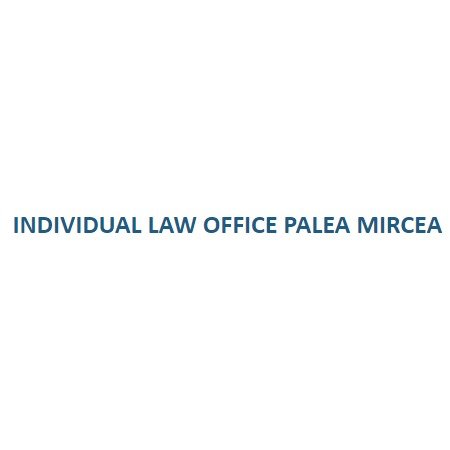Best Tax Increment Financing Lawyers in Sibiu
Share your needs with us, get contacted by law firms.
Free. Takes 2 min.
List of the best lawyers in Sibiu, Romania
About Tax Increment Financing Law in Sibiu, Romania
Tax Increment Financing (TIF) is a financial tool used by municipalities in Romania, including Sibiu, to encourage economic development in specific areas. It allows local governments to capture future tax revenue increases in a designated TIF district to fund current public infrastructure projects. The goal is to stimulate private investment in the area, ultimately increasing property values and improving the overall quality of life. By law, TIFs in Romania must adhere to national regulations but can vary depending on local policies.
Why You May Need a Lawyer
Understanding and navigating the complexities of Tax Increment Financing in Sibiu requires expert knowledge, as it involves numerous regulations and stakeholders. Common situations in which individuals or developers may seek legal advice include:
- Understanding eligibility criteria and designation of TIF districts.
- Negotiating and drafting development agreements.
- Compliance with local and national regulations.
- Disputes related to the allocation of tax increments.
- Enforcement of development deadlines and obligations.
- Assessing financial viability and potential risks.
Local Laws Overview
In Sibiu, TIF law aligns with Romanian national guidelines but includes distinct local regulations. Key aspects include:
- Designation of TIF Districts: Areas must demonstrate a need for economic revitalization and meet specific criteria to be designated.
- Approval Process: Proposals must undergo a thorough review process, including public consultations and council approvals.
- Funding Uses: TIF funds can be allocated for infrastructure improvements such as roads, utilities, and public transportation.
- Duration and Expiry: TIF districts typically operate for a set period, after which they must be reviewed or dissolved.
- Stakeholder Engagement: Collaboration between local governments, private developers, and the community is essential.
Frequently Asked Questions
What is the primary purpose of TIF?
The primary purpose of TIF is to support economic development in underdeveloped or deteriorating areas by using future tax revenue to fund current projects.
How is a TIF district established?
A TIF district is established through a rigorous process that includes an analysis of needs, public consultations, and approval by local authorities.
What can TIF funds be used for?
TIF funds can be used for public infrastructure improvements that will promote private investment and increase property values in the district.
Who benefits from TIF?
Both the community and private developers benefit from TIF: communities see improved infrastructure and services, while developers gain incentives to invest in the area.
How long does a TIF district exist?
The lifespan of a TIF district varies but is generally set for a specific period, often 20-25 years, during which the economic goals should be achieved.
What are the risks associated with TIF?
Risks may include insufficient revenue generation to repay project costs, potential legal disputes, and community opposition.
Can TIF fail?
Yes, TIF can fail if projected tax increments do not materialize or if the project fails to attract private investment, resulting in a financial gap.
How can I participate in the TIF process?
Community members can participate by attending public consultations and providing feedback during the proposal review process.
Do all projects qualify for TIF?
No, only projects that demonstrate the potential to significantly boost economic development in the district qualify for TIF.
What is the role of a lawyer in the TIF process?
A lawyer's role includes advising on legal compliance, drafting agreements, representing clients in negotiations, and resolving disputes.
Additional Resources
For further information or assistance with TIF in Sibiu, consider reaching out to the following resources:
- City of Sibiu Economic Development Office for local policy guidance.
- Romanian Ministry of Finance for national TIF guidelines and regulations.
- Local chambers of commerce for networking with businesses and developers.
- Professional law firms specializing in real estate and finance law.
Next Steps
If you need legal assistance with Tax Increment Financing in Sibiu, consider these steps:
- Research and consult with experienced legal professionals knowledgeable in TIF laws and local regulations.
- Prepare all necessary documentation and information related to your TIF inquiry or project.
- Participate in local meetings and consultations to stay informed about ongoing and upcoming TIF projects in Sibiu.
- Engage with community stakeholders to understand broader perspectives and implications of TIF initiatives.
Remember that with the complexity and potential impacts of TIF, professional legal advice is invaluable to ensure successful navigation and compliance with all relevant laws and regulations.
Lawzana helps you find the best lawyers and law firms in Sibiu through a curated and pre-screened list of qualified legal professionals. Our platform offers rankings and detailed profiles of attorneys and law firms, allowing you to compare based on practice areas, including Tax Increment Financing, experience, and client feedback.
Each profile includes a description of the firm's areas of practice, client reviews, team members and partners, year of establishment, spoken languages, office locations, contact information, social media presence, and any published articles or resources. Most firms on our platform speak English and are experienced in both local and international legal matters.
Get a quote from top-rated law firms in Sibiu, Romania — quickly, securely, and without unnecessary hassle.
Disclaimer:
The information provided on this page is for general informational purposes only and does not constitute legal advice. While we strive to ensure the accuracy and relevance of the content, legal information may change over time, and interpretations of the law can vary. You should always consult with a qualified legal professional for advice specific to your situation.
We disclaim all liability for actions taken or not taken based on the content of this page. If you believe any information is incorrect or outdated, please contact us, and we will review and update it where appropriate.

















